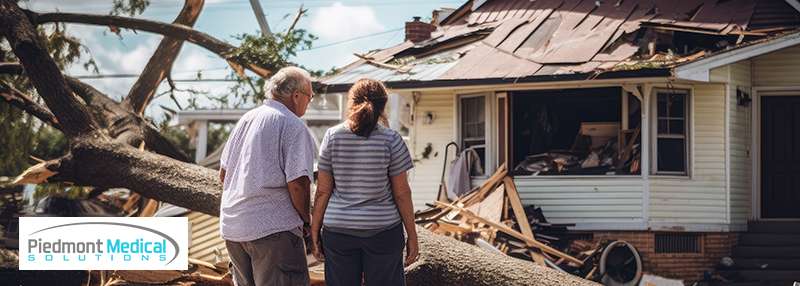Piedmont Medical Solutions
Updated Mon January 13, 2025
Published Under: Urological

As a catheter user, it's essential to be prepared for emergencies that may arise. Whether you're dealing with a catheter-related issue or a medical emergency, knowing what to do can make all the difference. At Piedmont Medical Solutions, we're committed to providing you with the resources and support you need to navigate emergencies with confidence. In this blog, we'll share essential tips for catheter users to help you stay safe and prepared.
Stay Calm and Assess the Situation
In the event of an emergency, it's natural to feel panicked or overwhelmed. However, it's crucial to remain calm and assess the situation to determine the best course of action. Take a few deep breaths, and think clearly about what's happening.
Catheter-Related Emergencies
- Catheter blockage or kink: If your catheter becomes blocked or kinked, try to gently manipulate it to restore flow. If the issue persists, contact your healthcare provider or emergency services.
- Catheter displacement: If your catheter becomes dislodged, try to reinsert it carefully. If you're unable to do so, seek medical attention immediately.
- Infection or UTI: If you experience symptoms such as fever, chills, or burning sensations during urination, seek medical attention promptly.
General Medical Emergencies
- Cardiac emergencies: If you experience chest pain, shortness of breath, or other cardiac symptoms, call emergency services immediately.
- Severe allergic reactions: If you experience severe allergic reactions, such as difficulty breathing or swallowing, call emergency services immediately.
- Other medical emergencies: If you experience severe pain, bleeding, or other symptoms that require immediate attention, call emergency services or seek medical help.
Essential Items to Keep on Hand
To ensure you're prepared for emergencies, keep the following items on hand:
- Catheter supplies: Always have a spare catheter, lubricant, and other necessary supplies in case of an emergency.
- First aid kit: Keep a basic first aid kit with essentials like bandages, antiseptic wipes, and pain relievers.
- Emergency contact information: Make sure you have a list of emergency contact numbers, including your healthcare provider and emergency services.
- Medication and medical information: Keep a list of your medications, allergies, and medical conditions in case of an emergency.
Staying Prepared and Informed
To stay prepared and informed, consider the following:
- Regularly check your catheter and supplies: Ensure your catheter is properly maintained and that you have adequate supplies.
- Stay up-to-date on medical information: Stay informed about your medical condition, treatment options, and emergency procedures.
- Practice emergency scenarios: Think through potential emergency scenarios and practice what you would do in each situation.
Team Up with Piedmont Medical Solutions
Emergencies can be unpredictable, but being prepared can make all the difference. By staying calm, assessing the situation, and knowing what to do, you can navigate emergencies with confidence. Remember to keep essential items on hand, stay prepared and informed, and practice emergency scenarios.
At Piedmont Medical Solutions, we're committed to providing you with the resources and support you need to stay safe and healthy. Contact us today to learn more about our catheter products and services.

Comments